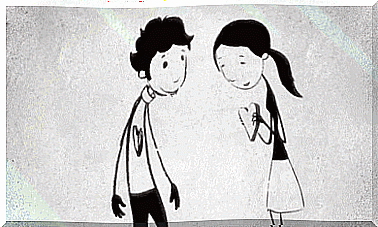3 Reasons Why You Shouldn’t Solve Other People’s Problems

Helping others is not that easy as you might think at first glance. In fact, it is not just a matter of meeting the needs of others so that they do not have deficiencies or sufferings. In reality, it is not that simple. Most of the time, you shouldn’t be solving other people’s problems because otherwise you are hurting them.
Neither deficiency nor suffering is inherently negative. In fact, we often find the path to our inner strength by taking responsibility for dissatisfaction and pain. For that, you must not solve the problems of the others because it is a way of stopping their evolution.
There is only one solution for which it is possible to take responsibility for the problems of others: when someone is physically or mentally unable to do so on their own. This is particularly the case for children or those who have an impediment that makes it impossible to make decisions. In the other cases, it is not possible because the generated loss is disproportionate. Let’s see below three reasons that confirm this.
1. You inhibit the ingenuity and resilience of others
The ability to solve problems and find solutions to them is not innate. It is learned and developed with practice. It includes cognitive aspects, but also emotional and behavioral aspects. It is not something that can be achieved overnight.
The only way to develop this ability to find solutions to difficulties is to face them. Of course, it’s much easier to let someone else do it for us, but it causes us to be less confident and more dependent.
You should not solve other people’s problems as this inhibits the development of their resourcefulness, their resilience, and the evolution of their vital capacities. The ones we will all need someday. Those that give us wings to fly instead of remaining attached to a refuge.

2. It is an obstacle to growth and it promotes dependence
This aspect is closely linked to the previous one. What happens when someone is always relying on someone else to steer clear of difficulties? He will simply fail to mature. Neither from the point of view of his intellectual capacities, nor from the point of view of his emotions, feelings and behaviors.
This engenders a series of consequences starting with the distortion of character. People who do not face problems on their own can become temperamental and demanding. In fact, they may end up not being grateful for the support that others give them. For them, being helped is an obligation to which others must respond.
Thus, people also do not learn to gain things through their own effort. They may even see the strain as unnecessary discomfort. At best, this leads to a selfish, bossy, and thoughtless way of being. So this is one more reason that proves that we should not solve other people’s problems.

3. Do you know which is best?
This is one of the main reasons why you shouldn’t solve other people’s problems: what makes you think you know what is best for others? Ultimately, you see the world and the challenges based on your own life experience, knowledge, and temperament, and that may not be valid for another person.
The path that is good for one person is not necessarily good for another. Everyone must be willing to make their own path. The one who pleases him, who can satisfy him, who allows him to better develop personally. However, it is a process that no one can do for someone else, because it is impossible to put yourself in someone’s shoes entirely.
Sometimes, even with the best intention, we only do harm. No one has the right to try to solve other people’s problems by believing that it is the solution. This can, for example, bring new obstacles or even make everything worse.
Solving other people’s problems out of habit is not a good idea because doing so can make others doubt their abilities. If you want to help, it is best to accompany and support, but not to prevent others from building their own path.









